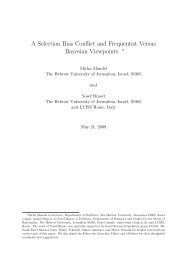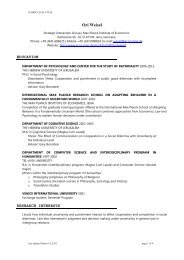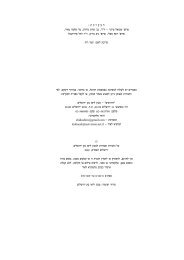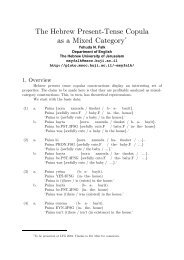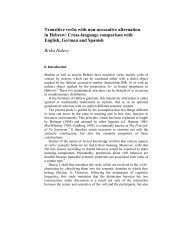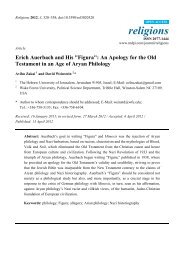The Federal Reserve May Be Politically ... - Pluto Huji Ac Il
The Federal Reserve May Be Politically ... - Pluto Huji Ac Il
The Federal Reserve May Be Politically ... - Pluto Huji Ac Il
Create successful ePaper yourself
Turn your PDF publications into a flip-book with our unique Google optimized e-Paper software.
independent and bent to the will of opportunistic leaders in both parties we would<br />
expect to observe (2), (4), and (5), but not (1), (3), and (6). If the Fed was an unconditional<br />
ination hawk in a world where the partisan model operated, we would<br />
not see a connection between the Fed’s reaction function and the electoral calendar<br />
and we certainly would not observe (2), (3), and (5). If this last world pertained and<br />
the Fed knew something about the inationary tendencies of the Democrats compared<br />
to the Republicans that was not captured in the measures of expected ination<br />
then we might observe (1), (2), and (3) but not (4) and (5) - and certainly not (4) and<br />
(6) together. at is, it is possible that the Fed charges Democrats an interest rate<br />
premium because it believes measures of expected ination do not fully captures the<br />
policy differences between the parties. If this were true the Fed would always react to<br />
changes in both ination and the output gap but the magnitude (but not signicance)<br />
of the coefficients would depend on the party that controls the White House. In other<br />
words, the lines in the marginal effects graphs would not cross, and the black lines<br />
capturing the reaction function for Republicans would be parallel to the x-axis.<br />
6 conclusion: does the fed tip the presidential electoral<br />
scales?<br />
e Fed has macroeconomic policy preferences that are closer to the median of the<br />
Republican party than to the median of the Democratic party. A partially independent<br />
central bank will, all else equal, set policies that are a weighted average of the<br />
party in power and its own preferences. Consequently, in normal times, the Fed expects<br />
it to be easier to accomplish its policy goals when Republicans control the White<br />
House than when Democrats do. <strong>Be</strong>cause voters reward pre-electoral expansions in<br />
output, strategic central bankers face a trade-off when Republicans are in power. Do<br />
they stick to their anti-inationary “guns” or do they compromise in the short-run<br />
in order to increase the probability that policy goals in the future will be easier to accomplish.<br />
When Democrats are in the White House the Fed faces no such trade-off.<br />
<strong>Ac</strong>ting as a good ination hawk now has the added benet of increasing the likelihood<br />
that they will have a party in power in the future that requires less accommodation.<br />
e choice confronting partially independent strategic central bankers is simple,<br />
compromise now, or compromise later. Our results suggest that since achieving<br />
operational independence in the middle of the last century, the Fed has consistently<br />
chosen the former. e behavior we have observed is consistent with the possibility<br />
that the Fed seeks to aid the election and re-elction of Republican presidents.<br />
We have not examined whether the difference in the Fed’s reaction function under<br />
Democrats and Republicans has had an electoral impact. However, a glimpse<br />
at the last century of American history is suggestive. In the half century since the<br />
20



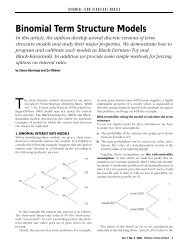
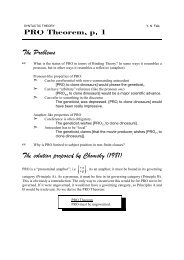
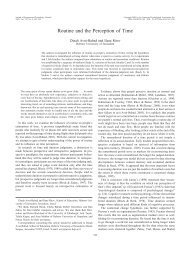
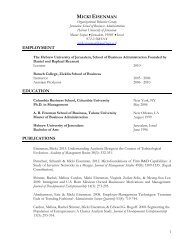
![CV [PDF] - Pluto Huji Ac Il](https://img.yumpu.com/18174585/1/190x245/cv-pdf-pluto-huji-ac-il.jpg?quality=85)
